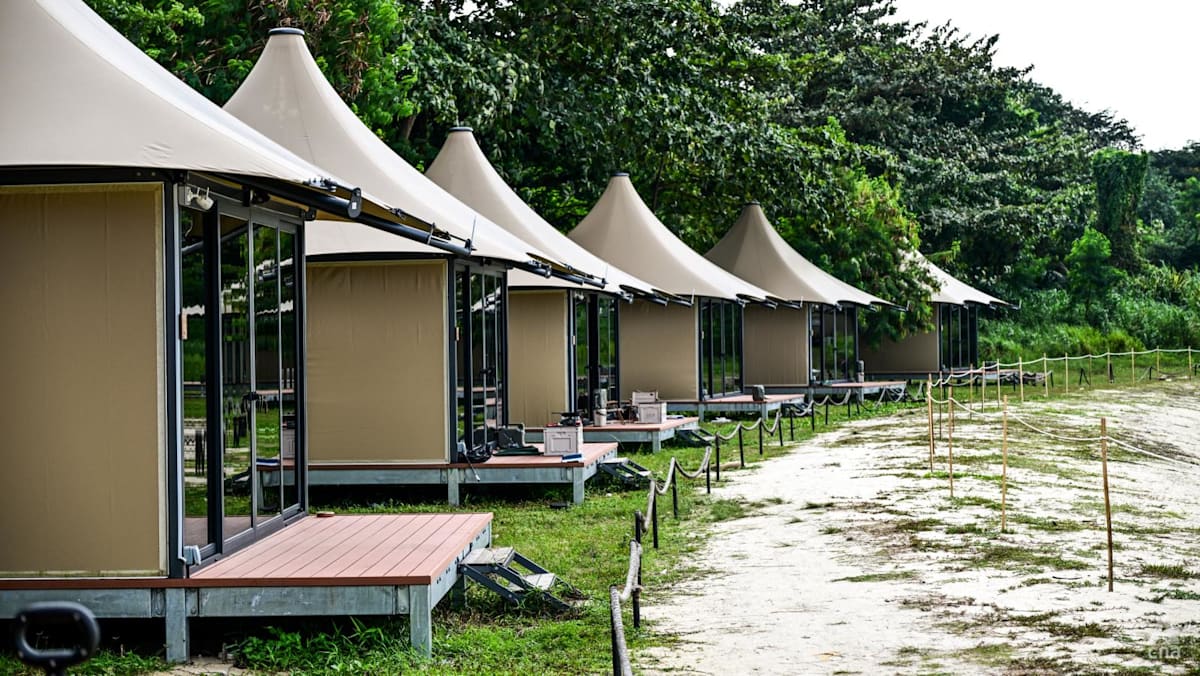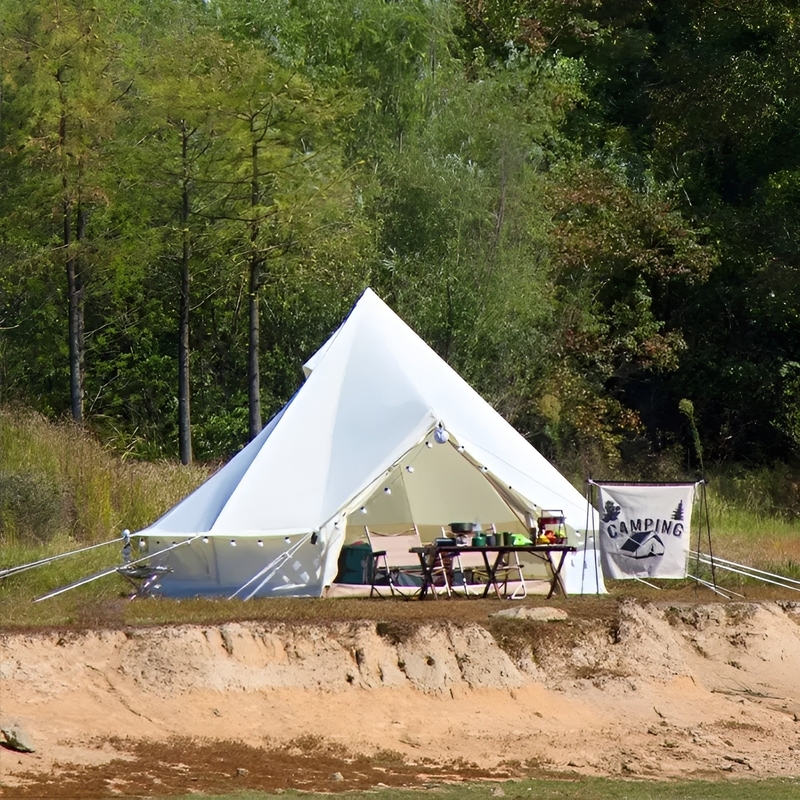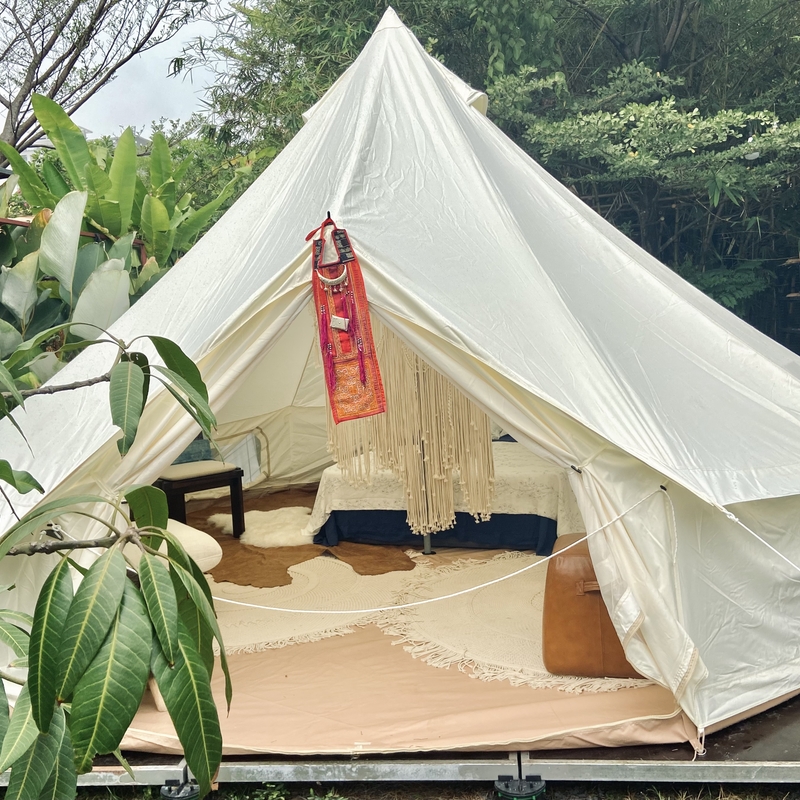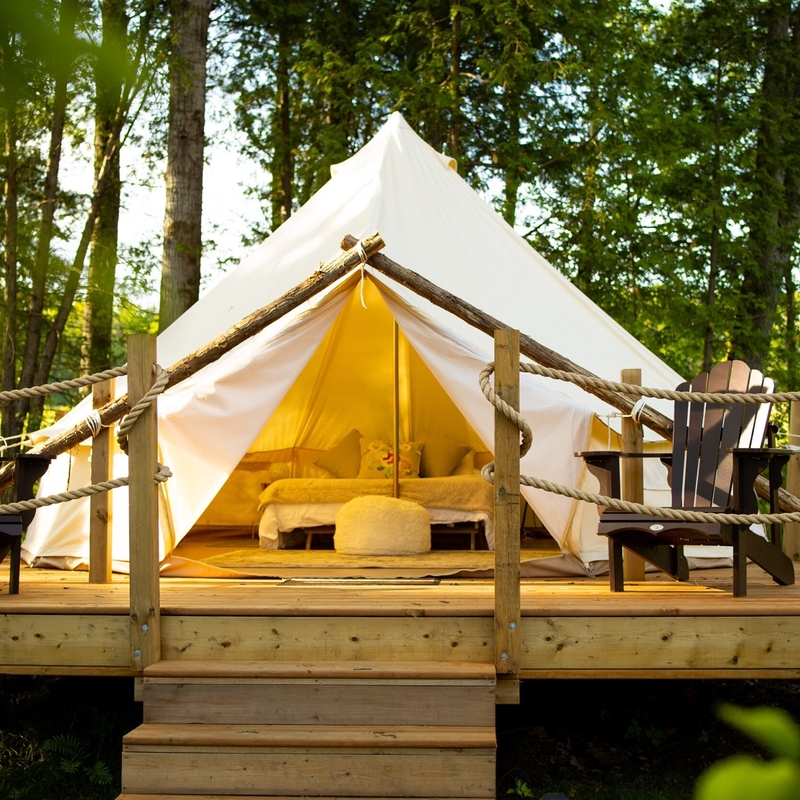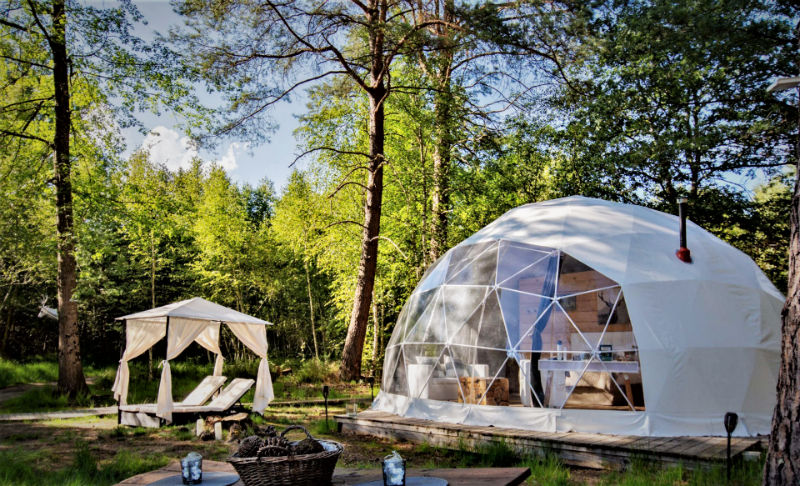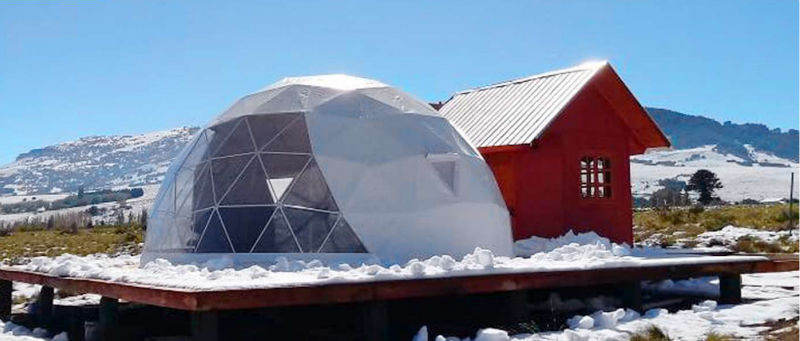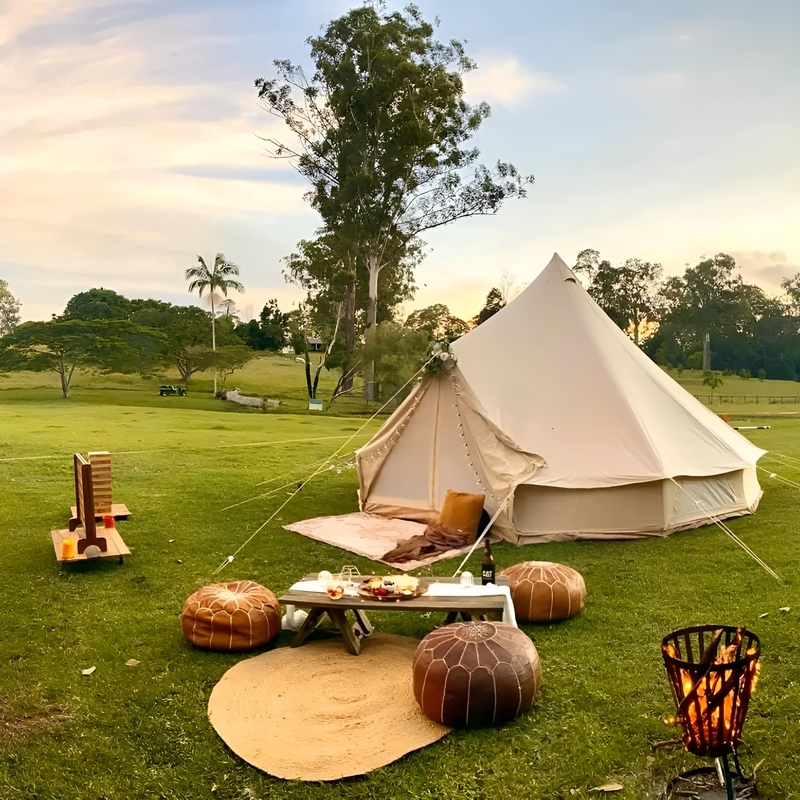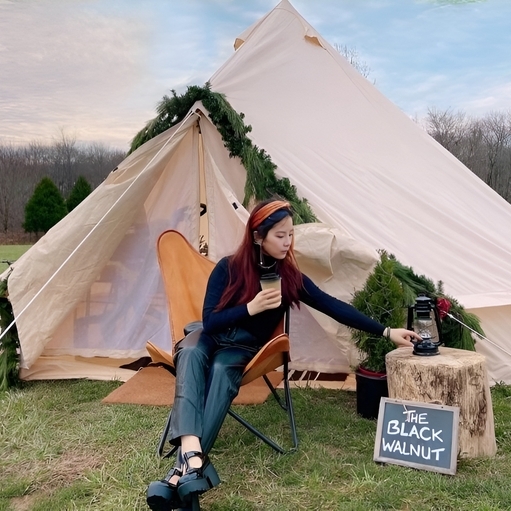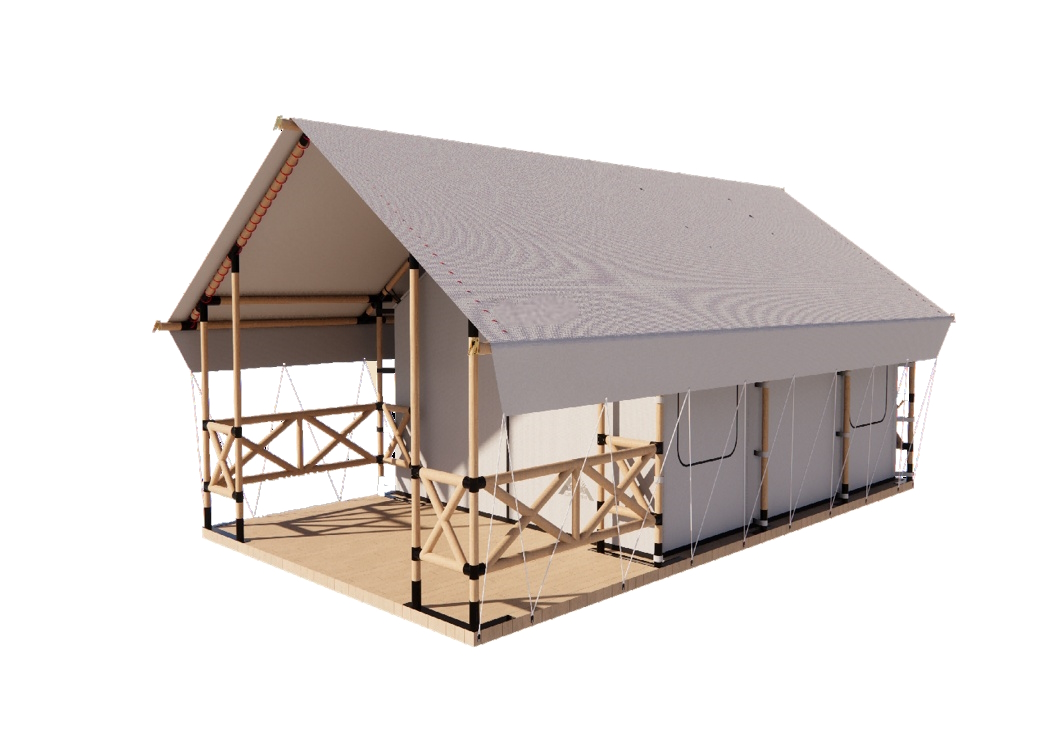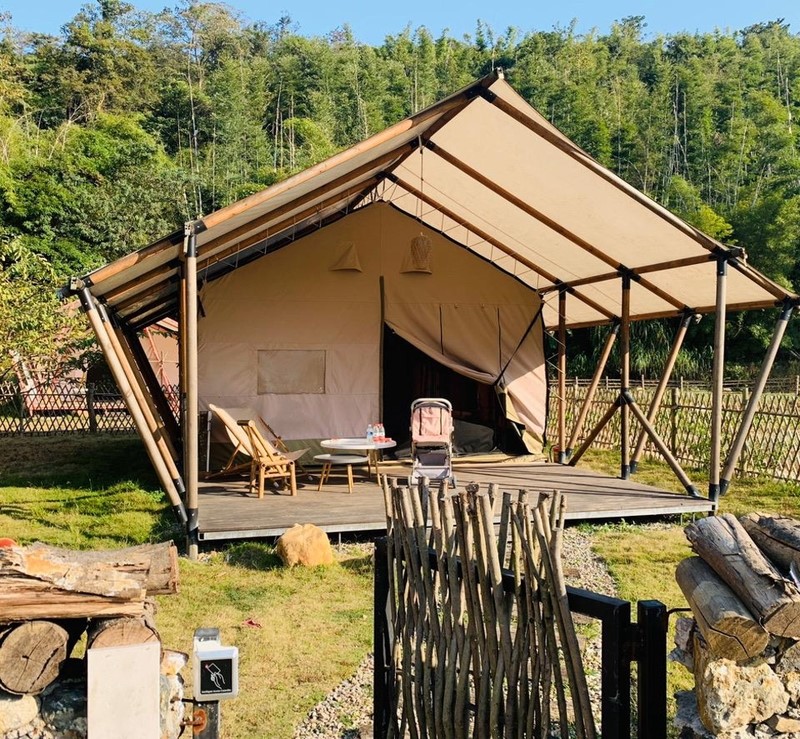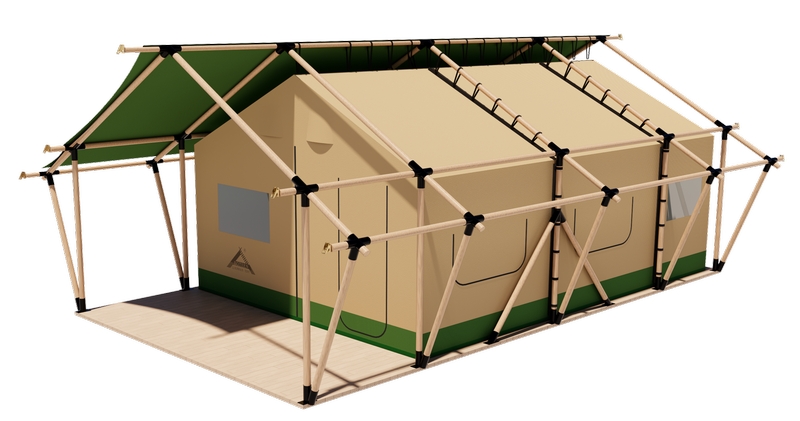On our final night at Genghis Khan Retreat, we were treated to a series of sporting events, including a friendly match between The Genghis Khan Polo Club and the Hong Kong Polo Development; Mongolian wrestling; and perhaps most exciting of all, horse racing—where dozens of children, all under the age of ten, raced for 11 kilometres at eye-watering speeds. We rode alongside the children in cars, watching in awe as they hollered and whipped through the valley, some riding bareback. If this isn’t the definition of freedom, I’m not sure what is.
At the finish line, the children’s families and trainers gathered to tend to their horses, wiping off sweat and brushing their manes. “Zaa, zaa,” they would mutter, a sound used by horsemen in the valley to calm overly excited horses.
That night, the guests and staff gathered together for one final feast of khorkhog, a dish where a whole lamb or goat is cooked using hot stones. Airag, an alcoholic drink made from fermented mare’s milk, was served by the ladleful. After dinner, another pot of airag was passed around the room. Whoever received it had to take a sip, then stand up and sing a well-known song, as others joined in. The whole ger erupted into songs—shifting between English and Mongolian, ancient songs of the Orkhon Valley and Wannabe by The Spice Girls.
There were no white tablecloths or fine china, no fussing over wine, no grumbling about politics, just people coming together over food and music in what must be one of the most beautiful and enchanting places in the world.
In moments like these, it was easy to see why they call Mongolia the “Land of the Eternal Blue Sky”; not only because its vastness appears to expand into forever, but because when you’re here, everything seems simple and uncomplicated.
Here, it is just open sky and open mind. Dart was right. Life is better on the steppe.
Source link
Author: www.tatlerasia.com
published 2024-12-21 08:00:25



















